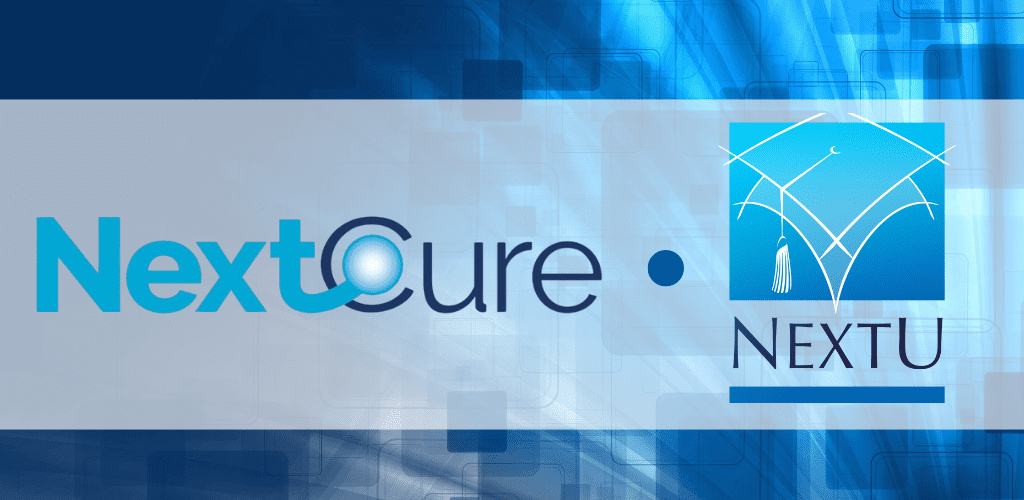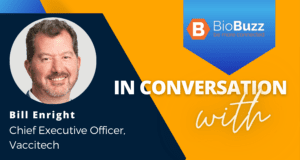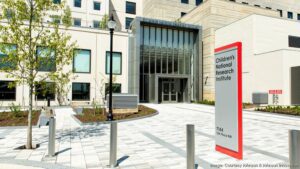
NextCure University: Transforming the Delivery of Microlearning Programs to Build an Innovative Workforce Focused on Cross Training
By Sarah Ellinwood
June 12, 2023
As you navigate your life science career, it’s critical to continue learning and growing when you’re on the job. Often employers will provide training resources for you, suggest you attend external workshops, or watch virtual classes such as LinkedIn Learning.
Let’s be honest, though – in-house training modules frequently do not address the training needs that employees are asking for and reliable external resources often come with a price, sometimes in the hundreds of thousands of dollars.
Beltsville, MD-based NextCure, a company that is discovering and developing first-in-class immunomedicines to treat cancer and other immune-related diseases, is taking a spin on employee learning programs.
NextCure University (otherwise known as “Next U”) is an internal microlearning program with the goal of deepening the understanding of every step of NextCure’s drug development process, including steps not necessarily done at the bench. Presentations are given by employees to explain different parts of their specific roles, demystifying what coworkers do each day by breaking down some of their main responsibilities, experiments, background science, or any other aspect of their job.
“By learning what each department, position, and person is doing, we, as a company, can start to work together more cohesively to better reach our goals,” said Jane Rouse, Scientist I at NextCure and committee chair for Next U. “More simply put, it’s a program where employees are given the opportunity to cross train in a different way than what typical training programs offer, teaching other employees how each piece of the puzzle fits into the whole picture.”
If you’ve read some of our previous NextCure coverage, you’ve seen how teams have a lot of overlap, with many different departments frequently coming together to work on a project or experiment. Even with that overlap, many staff were still curious about gaining a better understanding of what everyone does and how each role contributes to the overall team and company.
“Typically, as scientists, you aren’t given an inside look on the more business and regulatory side of things further than ‘provide this data’ or ‘write this technical report,’ so getting to crack open that department and see how things are actually done was unique and a good opportunity to gain a deeper understanding on why things are done the way they are. NextCure is already unique in that they are open to a wide variety of cross-training and we are encouraged to seek out different departments and work closely with a variety of professionals. Next U expands that opportunity,” said Rouse.
As of right now, Next U’s curriculum is largely volunteer-driven, which also works to foster an environment of inclusiveness. “We are intentional about ensuring that all staff have an opportunity to contribute, so if there is any topic an employee thinks will be beneficial to discuss and teach, they are welcome to do so,” noted Rouse. This empowers people to talk about what they’re passionate about. Rouse and the Next U Committee members also believe that letting employees decide the topics creates a higher quality for each learning session when compared to leadership deciding on a topic that they believe would be of value. In addition to volunteers offering topic ideas, the Next U team also polls the company to see what topics people might be interested in hearing around – if one employee is curious about something, it’s a safe bet that others might also share that curiosity!
“It’s interesting how hearing about a process or topic that doesn’t necessarily directly relate to your job can still have such an impact,” said Rouse. “Not only does that help the big picture, but this also lends to insights and lessons that can be altered and have a positive impact on a seemingly unrelated department. When employees have a better understanding of how each department works, they can better adjust their own work and departments to fit in better and form a smoother workplace.”
To date, the first few sessions have been fairly technical, diving more into the logistics of how to do a specific experiment or go through the manufacturing process. While coworkers might not understand the importance of every intricacy, Rouse noted that there were takeaway lessons that could be related and apply to every single position in the company. These more technical discussions also helped to broaden the understanding of the baseline science and background work that goes into each project.
“I was given the opportunity to present a broader overview on Formulation Development and how it connects in with the project timeline recently, and I think it started a pretty good discussion,” said Rouse. “I was able to answer a lot of questions about the specific, more technical topics relating to the science. Additionally, and more importantly, I was able to foster a discussion about how we can start to combine different steps earlier in the process to generate a better timeline with an ultimately better end product.”
She added, “Giving a presentation on a more broad level understanding of the Formulation Development process can help each department figure out how they can enhance their own formulation development. Also, on a more personal level, it has given me exposure to many of my other coworkers that I previously did not have much contact with. Opening that door has started the conversation on how we can better work together to make our products more efficient and useful.”
Additionally, the team recently had one of their Regulatory Specialists give a micro-presentation detailing how to properly plan for drug approvals and the types of documentation and submissions necessary for those approvals. This was immensely useful for NextCure’s Scientists, as they could see the purpose of some of their experiments/data and moving forward may be able to take the lessons learned into consideration to ultimately improve the regulatory submissions process.
One of the more stark differences between Next U and more traditional eLearning modules would be that Next U is driven by employees for employees. These modules aren’t scripted and read out by hired actors or outside experts in the field – they’re given by the employees actually physically doing this work. The presenters are not only experts in their own departments, but also the people that are directly impacted and involved with this work. Because of this, the presentations have a more personal touch and can relate directly to ongoing projects and studies in real time. This helps to also foster the connection between all the employees. If anyone has lingering questions or wants to dive deeper and learn more, all they need to do is find the presenter in the building and spark up a conversation. From there, a more unified environment with better workflows can start to naturally and organically occur. NextCure fosters an environment of curiosity and open communication between all departments, specialties, and employees. Next U is a direct example of how that can build a better workforce all around.
Another difference would be the forum – Next U meetings are done in person and at the end the organizers encourage a discussion between all members of the audience and the speaker. This is a good opportunity for people to ask questions and clarification, as well as discuss how they can transfer some of the knowledge into their own departments and day-to-day activities – something you wouldn’t get from a LinkedIn Learning course.
So far, the committee received positive feedback on Next U. Employees that attend the microlearning sessions report back that they are exposed to a significant amount of new information within a condensed format that was easy to follow. The discussions at the end of every presentation have also been a very successful addition to the program. “We’ve had so many questions asked about relating the information to specific departments and the discussions that come out of that have ultimately been incredibly informative and it helps our employees think in new ways. At the absolute minimum, coming out of every microlearning session, employees will have a bit of a higher level of appreciation and knowledge for the specific topic,” said Rouse.
Looking ahead, the committee has big plans for Next U’s future. “As we move forward, we are opening the floor to discuss more than technical and scientific topics, as one might expect from a scientific biotech company, for example we will also include areas such as project management and business processes. We will be hearing from our management team detailing how they do project management, as well as a presentation on Six Sigma and Operational Excellence from one of our Process Engineers. These talks will be a nice insight into the business side of things and will provide advice on how to manage teams and projects,” Rouse said.
“We are very excited about the future of this program. It is constantly evolving into a new and unique opportunity for our employees!”
- About the Author
- Latest Posts
Sarah Ellinwood is BioBuzz’s Managing Editor. A scientist by training and a science communicator at heart, Sarah specializes in making complex concepts understandable, engaging, and exciting. She received her Ph.D. in molecular and cellular biology with a focus in infectious disease immunology from the University of Maryland and is passionate about all things related to scicomm, peer mentorship, and women in STEM.










